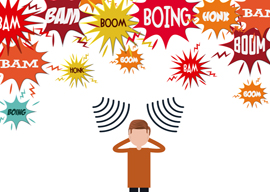
December 09, 2017

Source: Bigstock
This morning, I happened to take breakfast in a hotel. These days, all hotels seem to me expensive, at least for what they are, but this was, by the standards of such establishments, neither expensive nor, on the other hand, cheap—somewhere in between the two, as a physician once said to a patient who had neither cancer nor leukemia, but rather a lymphoma. But it was one of those many hotels in which television was a compulsory accompaniment to breakfast: not a boiled egg without an interview with a gormless footballer or a report on the weather 2,000 miles away relayed with fatuous facetiousness.
I asked the waitress at least to turn the sound off, which she did, and no one complained. My wife said that I should not have asked, for two reasons: first I ought, especially at my age, to accept the world as it is, and second that perhaps there were others in the room who wanted to listen to the state-sponsored drivel (it was the BBC).
I argued that my right to silence exceeded anyone’s right to listen to (or hear) that drivel. If they wanted drivel, they should listen to it in privacy and not impose it on others. I drew an analogy with smoking: For while I believe that people should have the right to smoke, they should again do so in private and not contaminate my air with their unpleasant exhalations. If, at breakfast, there had been twenty smokers and I were the only nonsmoker, my right to breathe in air free of their smoke would outweigh their right to smoke.
That is why I would like to propose a law in which any form of electronically relayed noise would be illegal in the presence of any person who did not want to hear it. When you come to think of it, it is strange how little attention environmentalists give to the problem of noise. That, of course, is because the one thing that environmentalists do not care about is the environment.